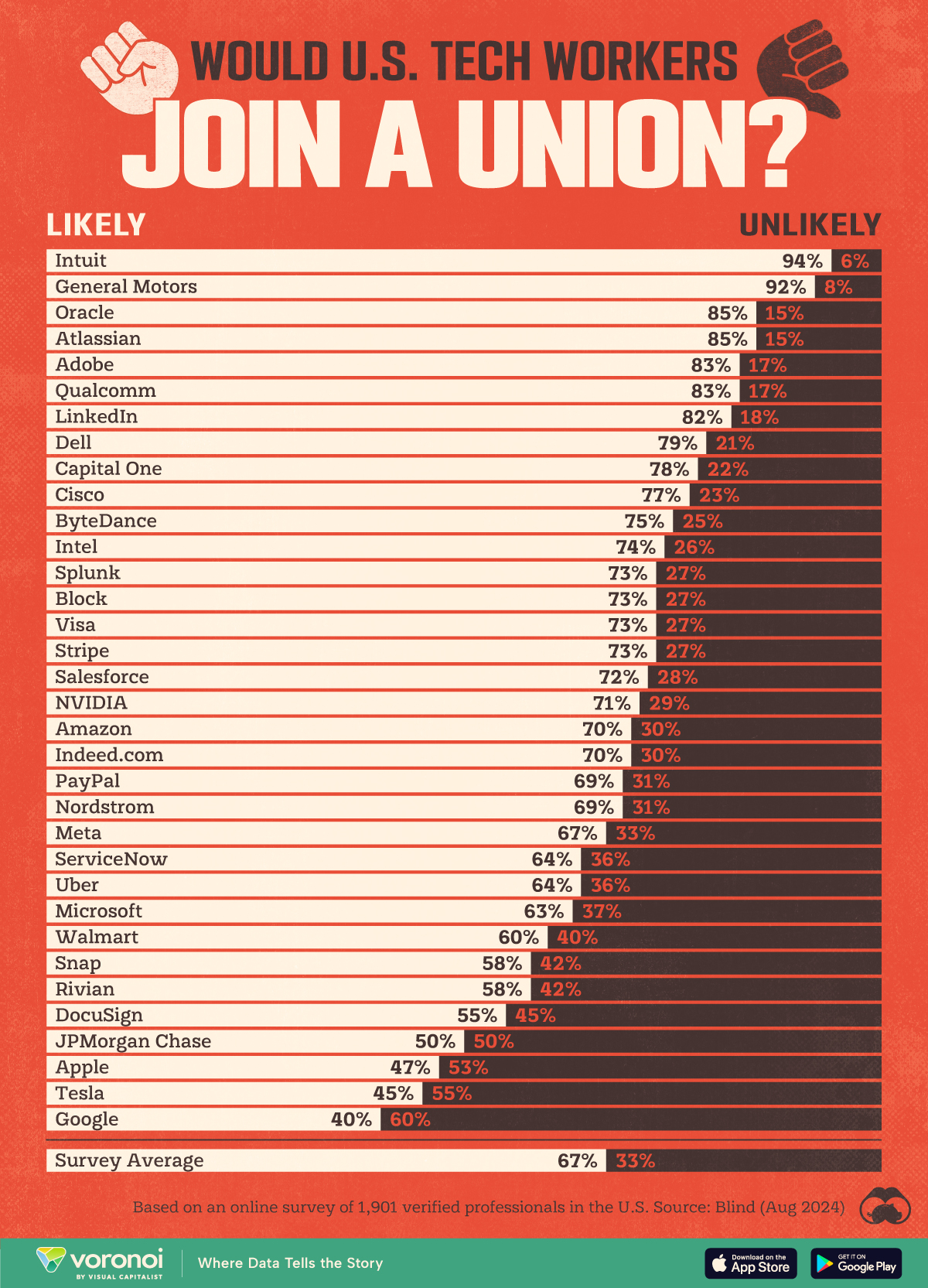this post was submitted on 01 Oct 2024
791 points (98.2% liked)
Technology
59312 readers
5184 users here now
This is a most excellent place for technology news and articles.
Our Rules
- Follow the lemmy.world rules.
- Only tech related content.
- Be excellent to each another!
- Mod approved content bots can post up to 10 articles per day.
- Threads asking for personal tech support may be deleted.
- Politics threads may be removed.
- No memes allowed as posts, OK to post as comments.
- Only approved bots from the list below, to ask if your bot can be added please contact us.
- Check for duplicates before posting, duplicates may be removed
Approved Bots
founded 1 year ago
MODERATORS
you are viewing a single comment's thread
view the rest of the comments
view the rest of the comments

When I think of a tech worker union my thoughts first go to standardizing everyone's pay and limiting what I can earn myself. I've probably fallen to anti-union propaganda.
A tech worker union that says nothing about pay could still do so much.
A union could ensure that the company's incentives are aligned with worker's incentives around things like on-call.
I'd love a union that forced a company to give all on-call workers compensation. Something like:
Basically, if a company is having lots of on-call alerts, or the company is preventing employees from using their comp time, you want this to be directly painful to the company. Incentives should be aligned, what is painful for the worker should be painful for the company.
Or, regarding "unlimited PTO". I'd love to see a union force companies to:
Tech workers have it good compared to a lot of workers, but there are still plenty of abuses a union could help with, even if the union never even mentions pay.
Those compensation requirements would basically make it financially impossible to have someone on-call or they'd just have to hire people for those hours and say they are normal working hours.
How would you force someone to take time off?
If I was their boss I would say something like "you're job is to stay home and do anything besides work for the next week, you will still be paid for this time". Easy.
As for the on-call stuff. Yes, that's the point. It should be unsustainable for a company to continually rely on their daytime programmers for frequent on-call alert handling.
If off-hours issues happen often, the company can hire an additional team to handle off-hours issues. If off-hours issues are rare, then you can depend on your daytime programmers to handle the rare off-hours issue, and know that they will be fairly compensated for being woken up in the middle of the night.
I've been at too many companies where an off-hours alert wakes up a developer in the middle of the night and the next day the consensus is "that's not good, but we'll have to fix the underlying issue after we finish implementing the new UI the design team is excited about". It's not right for a developer to get woken up in the middle of the night, and then the company puts fixing that on the backburner.
I'll say it again. It's about aligning incentives. When things that are painful for the worker are also painful for the company, that is alignment. Unfortunately, most companies have the opposite of alignment, if a developer gets woken in the middle of the night the end result for the company is that they got some additional free labor, that's pain for the worker, reward for the company; that's wrong.
Classic. Once I landed in a team who's been woken up every night, often multiple times a night for several years. The people left were so worn down, burnt out and depressed that it was obvious just by looking at them. The company has cut the team to the bone and the only people left were folks that didn't have the flashy resumes to easily escape. They had drawn up plans to fix the system years ago. BTW, none of that was disclosed to me until I had signed up and showed up for work and asked who are those miserable looking people over there. "That's your team" the man replied.